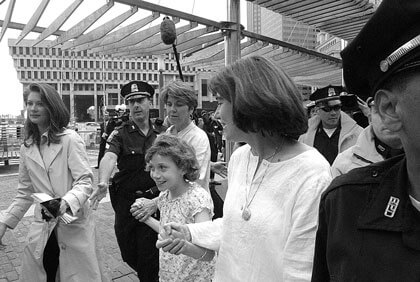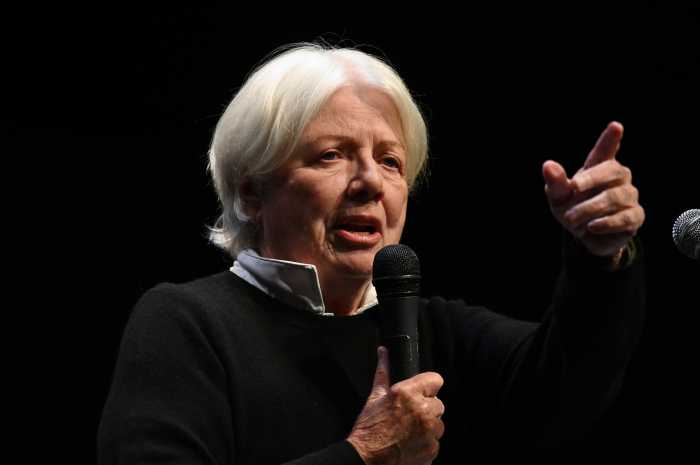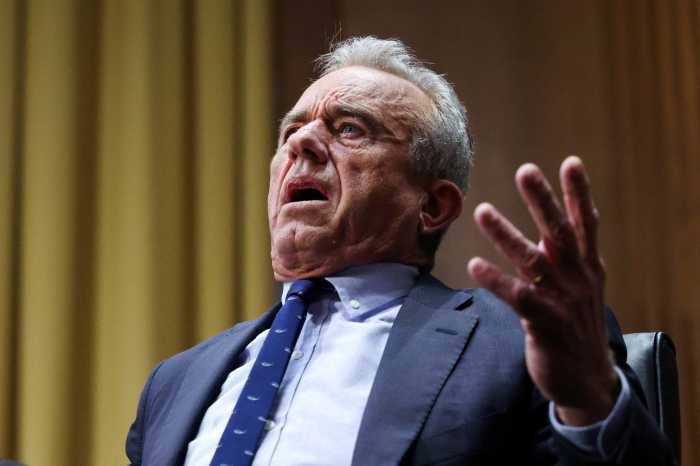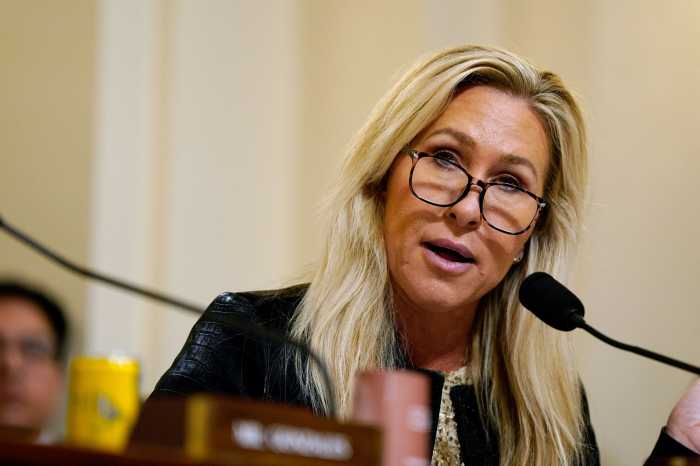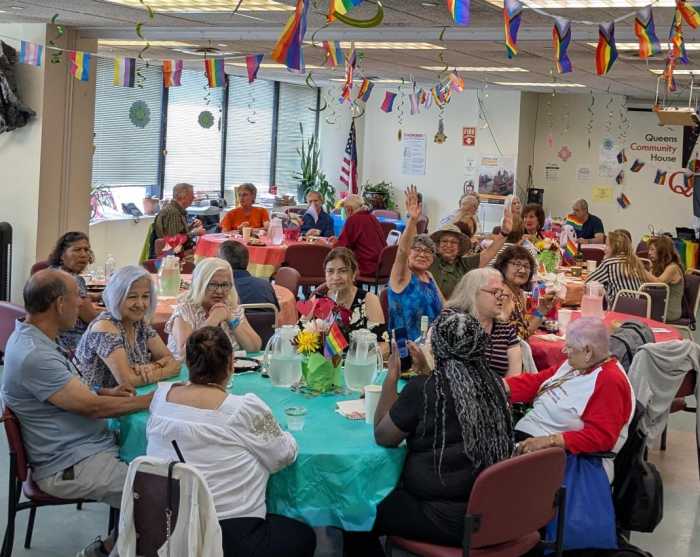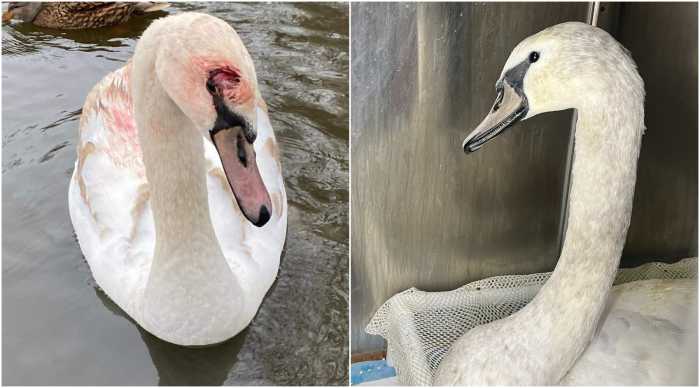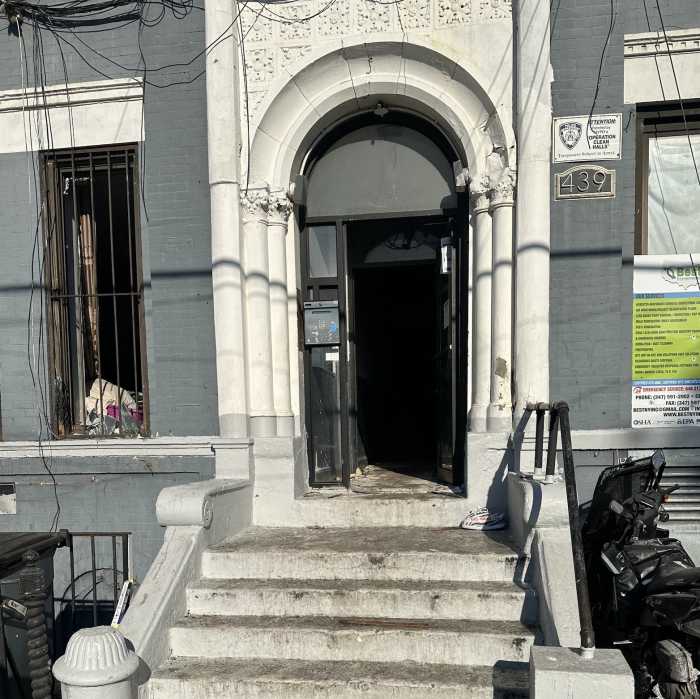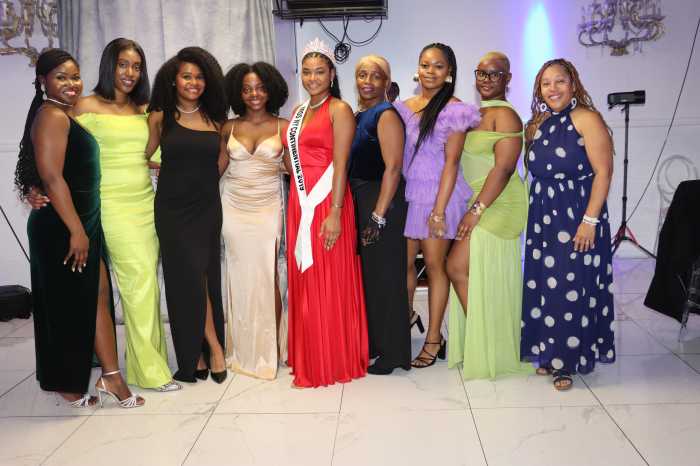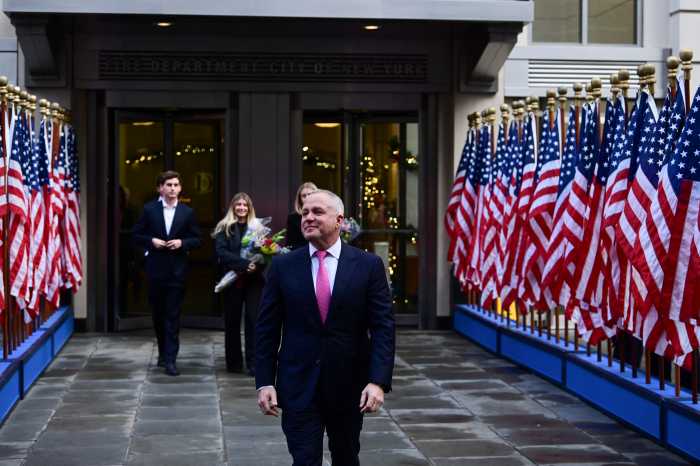Bay State Becomes First in Nation to Sanction Same-Sex Marriages
When Mary Bonauto stepped to the microphone in the Cambridge City Council Chamber shortly before midnight on May 16, she invoked Dr. Martin Luther King’s oft-quoted observation that “the arc of history is long but bends toward justice.”
“In a few minutes,” said the attorney for Gay and Lesbian Advocates and Defenders (GLAD), “it’s going take a sharp turn.”
Bonauto, the attorney who litigated Goodridge v. Department of Public Health, the lawsuit that paved the way for same-sex marriage to begin in Massachusetts on May 17, was one of an elated crowd of thousands who converged on Cambridge City Hall to celebrate the fruits of her labor. Shortly after the clock struck 12, the city began accepting the first legally approved marriage license applications from same-sex couples in the history of the Commonwealth of Massachusetts.
From the moment Tanya McCloskey and Marcia Kadish were married by Cambridge City Clerk Margaret Drury shortly after 9 a.m. the next morning, love was in the air in Massachusetts. So, too, were a sense of history and the knowledge that when couples say “I do,” they would make both a declaration of lifelong commitment and a political statement.
“It’s the beginning of the end of legal discrimination against gay and lesbian people who form same-sex couples,” said Cambridge resident Sue Hyde, after she and her partner—with their two children in tow—completed their marriage application shortly after midnight at City Hall.
“So for our family it’s hugely important. For our community it’s hugely important,” added Hyde, the director of the National Gay and Lesbian Task Force’s Creating Change Conference and a longtime local activist. “For the town we live in, as you can see by this wonderful event here tonight, it’s hugely important. It’s hugely important for the entire nation because this is the way it’s going to be. Not yet, not everywhere, but this is no longer a matter of if, but when, all same sex couples in the United States, if otherwise qualified, may legally marry.”
For Jackie Fein-Zachary and her partner Valerie Fein-Zachary, co-chair of Massachusetts Freedom to Marry, a group at the fore of the fight for same-sex marriage, their request for a marriage license application at Boston City Hall on the morning of May 17 came with a plea for justice.
“We want to say to everyone that we are now fully equal in America, that gay, lesbian, bisexual and transgender people now have a place at the table, and thank you, and we hope that you’ll let us stay at the table because it’s really the fair and just thing to do,” said Valerie. “And so we want America to be in dialogue with us and talk to us about this. It’s really important.”
Certainly, not everyone welcomed the new era. On Boston City Hall Plaza, a crowd of about 30 protesters stood away from the hundreds of cheering well-wishers who formed an impromptu receiving line for couples who filed out of the building after completing applications. The dissidents prayed and called for the removal of the four Massachusetts Supreme Judicial Court (SJC) justices who ruled that barring same-sex couples from access to civil marriage in Massachusetts is unconstitutional.
Pres. George W. Bush issued a statement renewing his call for a federal constitutional amendment to exclude same-sex couples from marriage. “The sacred institution of marriage should not be redefined by a few activist judges,” said Bush, a sentiment echoed locally and nationally by conservative religious activists.
Neither were congratulations forthcoming from Gov. Mitt Romney, whose efforts in recent months to stall the implementation of Goodridge failed.
“All along I have said an issue as fundamental to society as the definition of marriage should be decided by the people,” Romney said in a May 17 statement. “Until then, I intend to follow the law and expect others to do the same.”
Romney has been criticized for his enforcement of a 1913 state law barring out-of-state couples from marrying in Massachusetts if their marriage would not be recognized in their home state, a law—originally written to prevent interracial marriages—that effectively bars out-of-state same-sex couples from marrying in the Bay State. According to news reports, the governor has requested copies of same-sex marriage license applications from the cities of Worcester, Springfield, Somerville, and Provincetown, where clerks have refused to enforce the law, by May 20. It is not yet clear if the governor plans to void the marriages of out-of-state same-sex couples.
Ron Crews, the former president of the Massachusetts Family Institute, the organization leading the charge against same-sex marriage in the Bay State, said same-sex marriage opponents would continue efforts to pass a state constitutional amendment to overturn the Goodridge decision and to oust legislators who voted against the amendment, which would not be put to voters until at least November 2006.
As he stood alone on Boston City Hall Plaza watching the festivities, Crews, now a congressional candidate, suggested that heterosexual marriages have been diminished by the advent of legal same-sex unions.
“This in my view is a sad day because the piece of paper that my wife and I received 34 years ago had bride and groom on it, and this piece of paper is significantly different from that, and that goes to the very core definition about what marriage is about,” said Crews.
“When my wife and I got married, the first time we consummated our marriage relationship we had the potential for producing a child,” he added. “These couples, as much as they will enjoy their sexual union, can never produce a child by their sexual activity. And that goes to the core definition that marriage has always been linked to producing the next generation and raising the next generation.”
Such sentiments didn’t dampen the joy of the many couples filing applications and, in many instances, heading to the altar as soon as possible. Included in the first-day nuptials were all seven of the plaintiff couples in the Goodridge suit.
Cambridge accepted marriage license applications from 268 couples on May 17; many of them sought waivers of the state’s mandatory three-day waiting period and married soon after. According to Boston City Registar Judith McCarthy, as of closing time on May 18, 213 same-sex couples had applied for or received marriage licenses in the city. Provincetown town clerk Doug Johnstone issued 152 applications on May 17. Of those, 14 couples received a three-day waiver, received licenses and were presumably were married that day. More than 20 more applications were filed as of mid-afternoon on May 18.
In the city of Northampton, 112 same-sex couples turned up at City Hall on May 17 to apply for licenses, said City Clerk Wendy Mazza. As of May 18, at 2 p.m., five or six additional couples had filled out forms, she said.
At least four out-of-state couples applied for licenses, said Mazza, who assisted one couple from New York. “And they all had stated that they intended to reside in Massachusetts, and they took the oath and signed the affidavit. That’s as far as I took it.”
Under guidelines issued by the governor, couples applying for marriage licenses are now required to present to municipal clerks proof of residency or swear that they intend to reside in Massachusetts should their marriage be void in their home state.
The SJC’s 4-3 Goodridge decision served not only as the gateway for the events of May 17, it became a vital portion of at least two ceremonies: The Rev. Kim Crawford Harvie read an excerpt from the majority opinion as the invocation at the wedding of Goodridge plaintiffs David Wilson and Robert Compton. Justice of the Peace Gayle Smalley also invoked the words of Chief Justice Margaret Marshall at the wedding of plaintiffs Ellen Wade and Maureen Brodoff.
And while the sight of same-sex couples marrying will undoubtedly stir a backlash among opponents, for Newton state Rep. Ruth Balser, the sight of Wade and Brodoff marrying in the office of Newton Mayor David Cohen has strengthened her resolve to defeat the proposed state constitutional amendment in next year’s legislature.
“As everyone has said, I cannot describe to you, it is hard to describe how meaningful an experience it was to be present for your wedding,” Balser told the couple and a crowd of more than 500 well-wishers who toasted the newlyweds outside of Newton City Hall.
Balser, who appeared alongside state Sen. Cynthia Stone Creem and Rep. Kay Khan, said that while she cries at every wedding she attends, “different words trigger the emotional response of the day, and today the words that triggered my crying was when it was said that this [wedding] was acting consistently with the laws of the Commonwealth of Massachusetts.
The Rev. Dr. Kenneth Orth, a United Church of Christ minister, joined Goodridge plaintiffs Ed Balmelli and Michael Horgan in holy and civil matrimony in an early evening ceremony.
“What God has joined together,” said Orth, “let no one put asunder.”
Laura Kiritsy is associate editor of Boston’s Bay Windows, whose staff reporter Ethan Jacobs contributed to this report.

